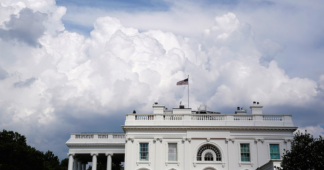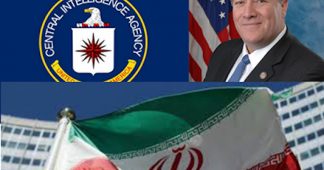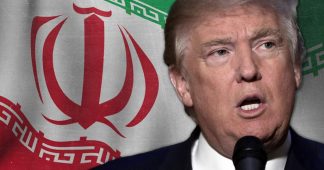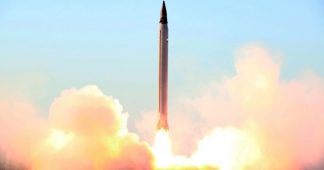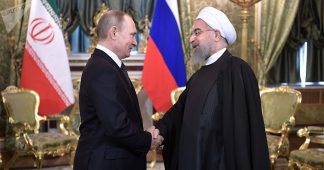By Ian J. Stewart
thebulletin.org
The Joint Comprehensive Plan of Action (JCPOA) is at risk of failure, potentially turning Iran into the next North Korea. Reports suggest that both the Trump administration and hardliners in Iran are ready to walk away from the agreement. Both sides accuse the other of violations, and the Trump administration is apparently intent on finding a reason not to recertify the agreement, due in a little under 90 days. And yet, the JCPOA remains the best way to ensure that Iran does not acquire nuclear weapons, at least in the next decade. In light of this, European leadership should urgently pursue three policy options—including the opening of a European financial channel with Iran—to counter the opposition to the agreement by the Trump administration and Iranian hardliners.
The Trump administration and Iran are risking Europe’s strategic interests. The European states had pursued a peaceful but verifiable agreement on the Iran nuclear issue since the early 2000s and were key to achieving the nuclear agreement with Iran. The European Union and its member states were among the key actors in negotiating the JCPOA and are now centrally involved in ensuring that Iran adheres to (and doesn’t cheat on) the agreement. This European involvement includes chairing the Joint Commission, the mechanism accepted by all parties and endorsed by the United Nations Security Council as responsible for ensuring that the agreement is fully implemented by all sides.
To date, it has also been the Europeans who have adhered most closely to the letter of the agreement. European countries have lifted sanctions as required by the JCPOA and have engaged in civil nuclear cooperation with Iran on issues like nuclear security. European businesses have also begun to re-engage with Iran, including through one particularly large contract between the French oil company Total and the National Iranian Oil Company to develop a phase of the South Pars oil field. At the same time, European States have taken a firm line when Iran has pushed the bounds of the JCPOA, including its technical violation of the heavy water cap and proposals to import large quantities of uranium from Kazakhstan.
For its part, however, Iran has largely adhered to both the letter and the spirit of the JCPOA. Iran has destroyed the core of the Arak reactor and dismantled vast numbers of centrifuges. And its technical violations have been relatively minor to date. Worryingly, there are signs that Iran has also engaged in some higher risk activities, such as a previously underreported case involving the import of carbon fibre for its missile program, a dual‑use material subject to export controls under the Nuclear Suppliers Group guidelines. But to be clear, this case was not considered a violation of the JCPOA by the United States, as the agreement covers only the import of dual-use goods for “Iran’s nuclear programme [as] set out in this JCPOA or other non-nuclear civilian end-use.” Counterintuitively, this language means that imports of nuclear-related dual-use items for a missile-related end use are not considered “civil” and are therefore a violation not of the JCPOA but of UNSCR2231, which prohibits development of missiles capable of carrying nuclear weapons. In this case, Iran is evidently pushing the bounds of what is allowed under the JCPOA.
Despite the Trump administration’s rhetoric, the United States has also largely lived up to its commitments under the JCPOA. In particular, the United States lifted—and doesn’t appear to be planning to reverse—its own nuclear-related sanctions. (Washington has taken additional action in relation to Iran’s ballistic missile program, including through the designation of additional entities to be sanctioned.)
Amid this general adherence to the JCPOA, however, President Trump’s harsh anti-Iran rhetoric and the opposition of Iranian hardliners and Iran’s Islamic Revolutionary Guard Corps risk undermining the nuclear agreement—an agreement that has undoubtedly has set back Iran’s nuclear weapons potential by many years and is in Europe’s strategic interests.
There’s much more that Europe could do. The Iran nuclear agreement belongs as much to Europe as it does to the other countries involved. European states demonstrated that they were willing to take an economic hit from sanctions to bring the agreement about. They have also invested heavily on the diplomatic front to both achieve and maintain the JCPOA. There is now no question that the European states wish to see full, continued implementation of the JCPOA and would only change this view if Iran committed an egregious violation. For these reasons, the European states have embarked upon a diplomatic and public campaign to persuade the United States that it must not withdraw from the agreement.
To sustain the JCPOA, however, the Europeans must urgently undertake three additional actions to demonstrate to both the United States and Iran that Europe will implement the JCPOA for as long as Iran is in compliance.
First, the Europeans should again explore the possibility of creating a safe financial channel for transactions with Iran. This move would have the dual benefit of encouraging trade with Iran, which has hitherto been slow to pick up, while also making clear to hardliners in the United States that it could not, on its own, undermine the JPCOA by leveraging the international financial system. Second, Europe should be prepared to adopt further sanctions on Iran for any violations of Security Council resolution 2231. This should include both missile launches and violations of the procurement restrictions mentioned above. These two actions would make clear that Europe is committed to implementing the JCPOA regardless of the actions of the United States and, at the same time, that the European countries are not willing to accept egregious action by Iran.
The European Union should embark on a third action. Presently the JCPOA is the best mechanism to ensure that Iran’s nuclear program stays peaceful, but the value of the agreement’s restrictions will reduce over time. By the mid-2020s, Iran will again be scaling up its enrichment effort. Therefore, the EU should begin to search for a longer-term solution both to the Iran nuclear issue and to broader regional tensions. This might best be pursued in the short term through the holding of bilateral dialogues and through civil society discourse on relevant security issues, including the nuclear issue and broader regional security issues.
Europe’s interest and President Trump’s interest align. Although President Trump might feel he can do without the Obama-era JCPOA, in reality the agreement is the best mechanism for both the Europeans and the United States to ensure the peaceful nature of Iran’s nuclear program—at least for the next decade. It is also in the interest of Iran and its people. As such, it is appropriate for the Europeans to use its position and influence to ensure the sustainability for the JCPOA for as long as the IAEA confirms Iran’s compliance.
The Trump administration might resist the idea of a safe European financial channel with Iran or European leadership in relation to broader regional issues. It should nonetheless be willing to accept these measures, given that the result would be to ensure the continued peaceful nature of Iran’s nuclear program. The alternative would be for the United States to unilaterally weaken is position vis-à-vis Iran and diminish its control over the global financial system, which would be counter to broader US security interests.
President Trump must ultimately decide within 90 days on whether to recertify Iran in compliance or to jeopardize the security interests of both the United States and its closest allies.
